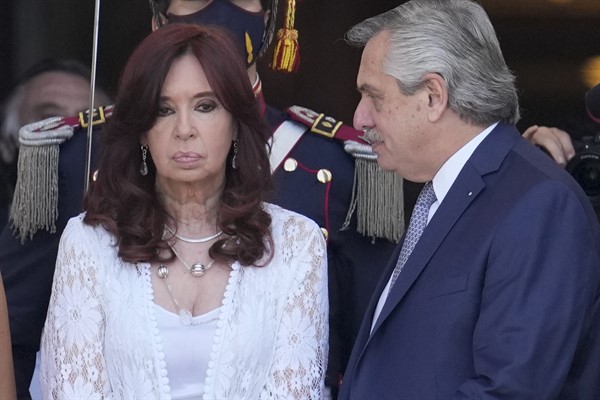In most of the world, the International Monetary Fund is just a multilateral financial institution. In Argentina, in contrast, the fund is a fundamental and highly controversial part of economic and political life. As if to highlight that, the country’s ruling Peronist coalition is currently unraveling from internal divisions following a recent agreement between the government and the IMF, approved only weeks ago.
The Peronists returned to power in 2019 due to a clever political move by former President Cristina Fernandez. Aware that she herself was too polarizing, she anointed Alberto Fernandez—a moderate who is no relation—as presidential candidate, while she ran as vice-president instead. The experiment proved successful, as they handedly defeated the pro-market incumbent, Mauricio Macri.
They were helped by Macri’s unpopular decision a year before to turn to the IMF for assistance amid a serious economic crisis. Though the fund disbursed $44 billion, its largest loan ever, the package did little to prevent the crisis from deteriorating, which was one of the principal factors behind Macri’s defeat. The Fernandez-Fernandez ticket came into office promising to revive the economy, prioritize the poor and avoid IMF-imposed austerity. That was all easier said than done.

